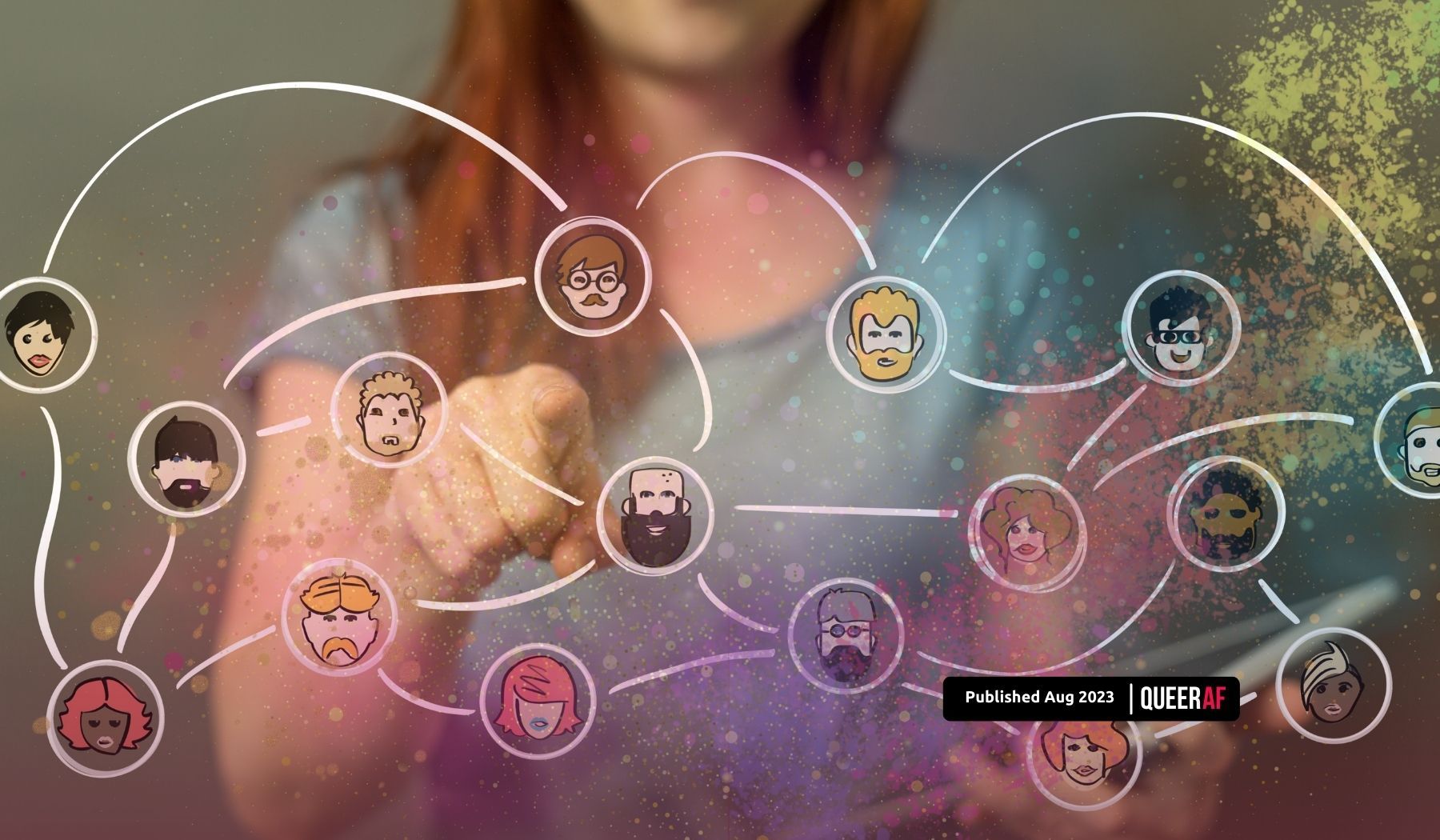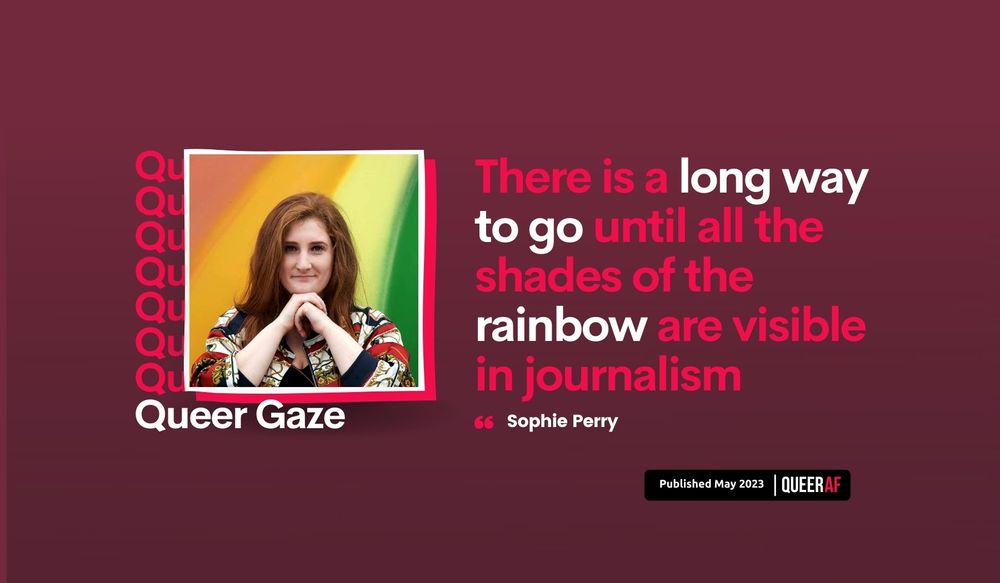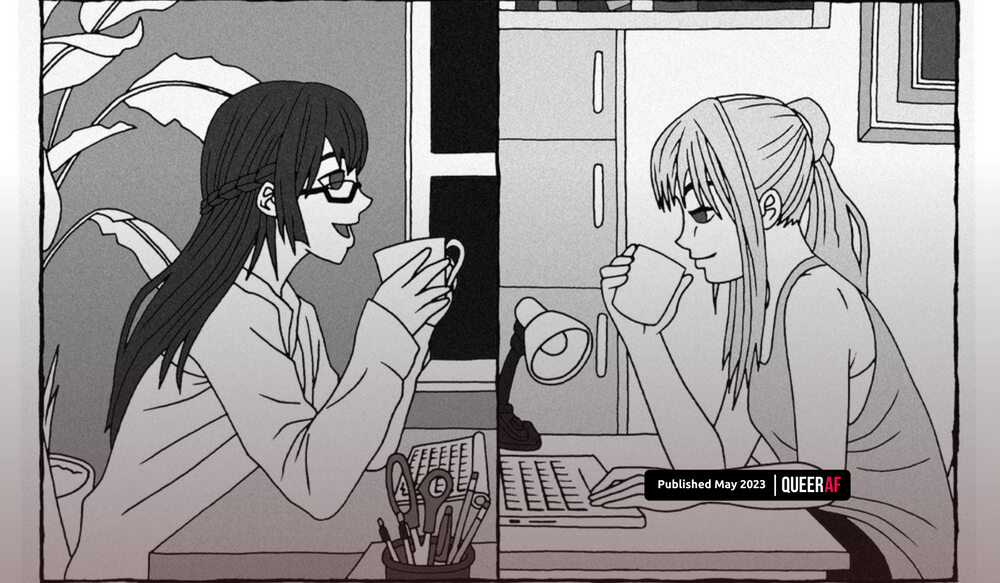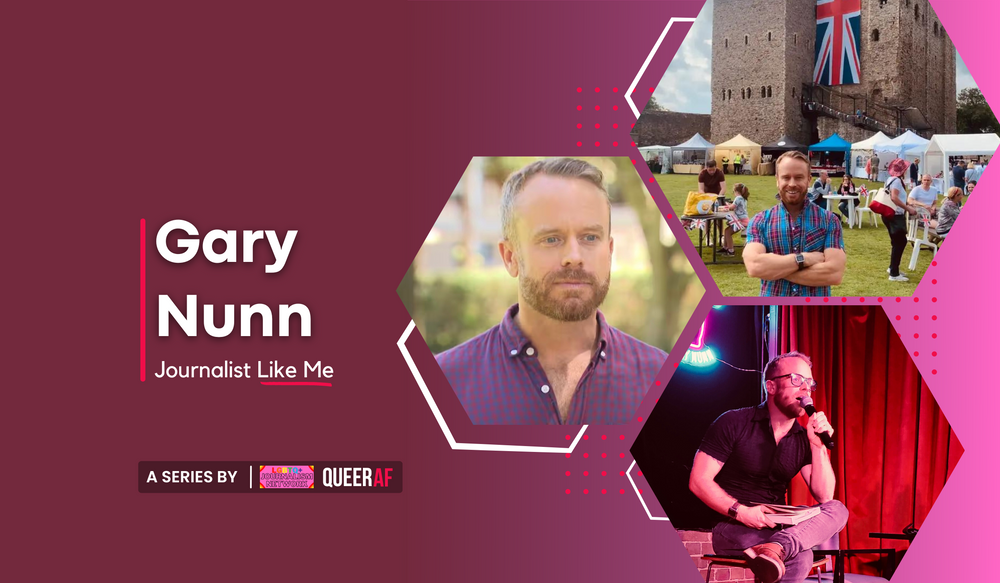
I was 20 when I first realised I was in love with a girl.
I’d say that it was the moment I realised I was queer, but at that point, the word was barely in my vocabulary. It had never occurred to me that I could be anything other than 100% heterosexual.
Cue months of questioning, soul-searching and googling. I even re-watched The Bold Type, in which the “totally hetero” Kat is shocked to find herself falling for another woman.
But none of it could eradicate the imposter syndrome. I was afraid to enter queer spaces, even online ones because I felt like I didn’t belong.
It’s strangely fitting, though, that The Bold Type - a show about journalists - made such an impression because networking with other queer journalists was a huge help to me.
It was like having a cosy jacket to wear: not overbearing, but enough to feel safe and grounded as I took my first cautious steps into the LGBTQ+ community.
First, there was a journalists’ Zoom meeting, which turned into the cheekily named ‘GAYS R US’ group chat.
Later I found out about the LGBTQ+ Journalism Network and didn’t need much persuading to join.
The stand-out moment, though, was a 2021 Zoom talk called ‘Being an LGBTQ+ Journalist’, led by non-binary journalist Lowie Trevena.
Near the end, sick with nerves, I sent in a question about my experiences. I can’t remember Lowie’s answer word-for-word, but it was something like:
‘Yes, you can still write about queer issues. No, it doesn’t matter that you’re still questioning. No, you’re not a fraud - and yes, you are absolutely “queer enough”.’
I wish I could say this made all my doubts magically disappear, never to be seen again.
In truth, I still needed several more months of research and experimenting, plus a chat with the LGBT Foundation’s helpline. Even now, the insecurities haven’t gone away completely.
Regardless, I feel a lot more comfortable (and proud) openly identifying as a queer woman these days.
And networking with other queer journalists - in spaces where I could ‘talk shop’, yet still be myself - was a vital part of that process.
So if you’re facing similar worries, watch The Bold Type. Secondly, try this feature by Vice’s Rachel Miller, which was eye-opening for me.
Most importantly, remember that who you are - even if you’re still figuring that out - is valid and ok.
Yes, there are some judgemental idiots out there. But there’s also a fabulous community of fellow LGBTQIA+ journalists who can and will support you.
As part of our commitment to the sector, QueerAF has partnered with the LGBTQ+ Journalism Network to run this 'Journalist Like Me' content series and help develop a thriving network of queer media professionals.
➡️ Support our mission to change the media with a QueerAF membership
It's different, we know.
The way QueerAF works with contributors is different from most outlets.
When we work with emerging and marginalised writers who want to build their craft we offer them a skills session with every commission.
The session is designed to put them in control of their edit and to help them understand the reasons behind any changes we suggest. Understanding why, not just what, helps them grow their journalistic flair - and get more commissions.
It's been described as "like therapy, but for writing" - and it's helping.
We ask every creative to rate our process. 90% gave us a perfect score on our communication and approach. The retro, our unique way of editing their work, has an average rating of 9.8/10.
But this approach, which means you get free award-winning content from fresh new voices without outside pressures, is only possible with your support.
So why not take a look at what our creatives say about our work, and find out how to become 100% QueerAF?










